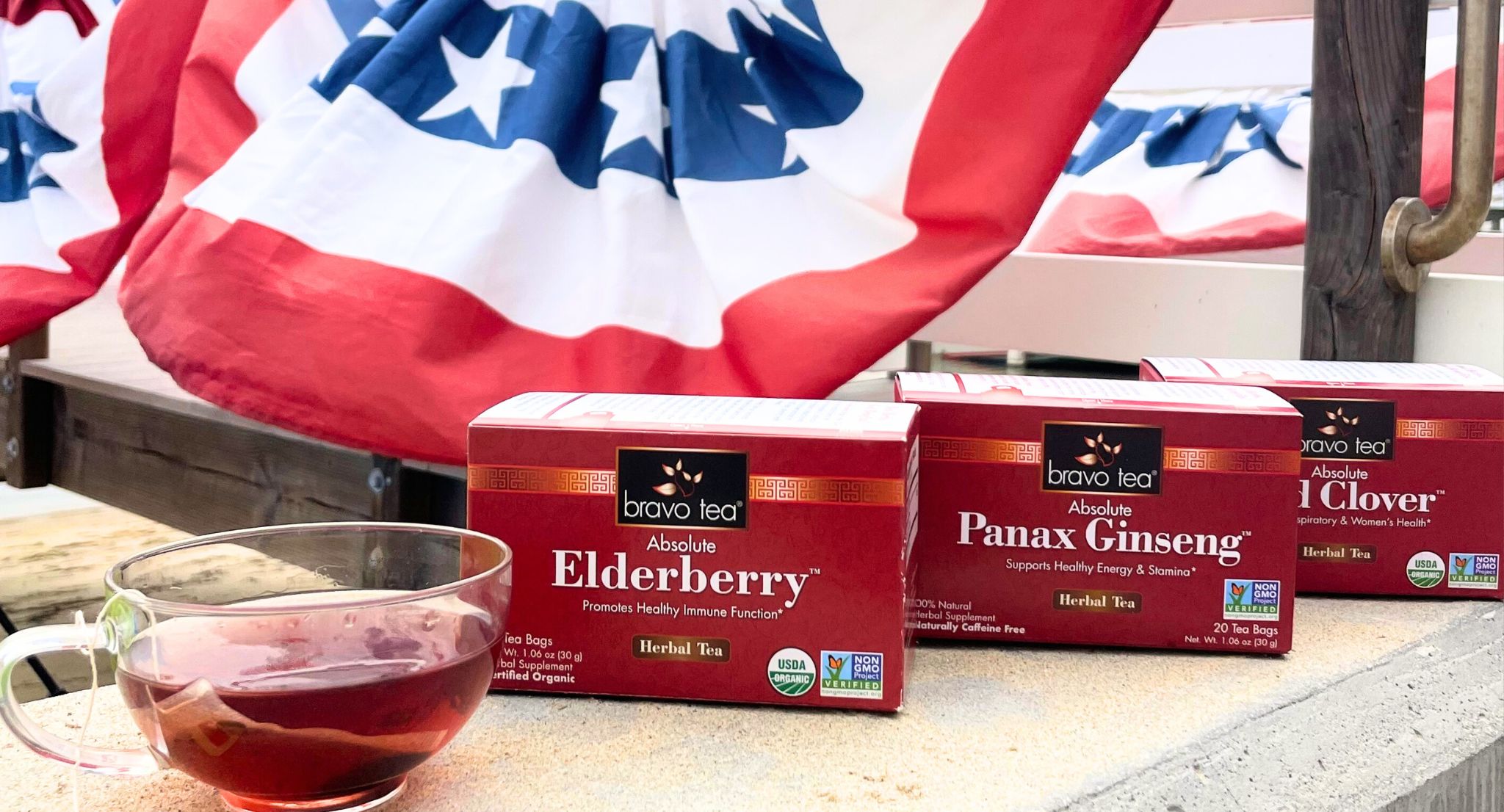Bravo Tea has a curated selection of herbal teas designed to support your well-being during the harsh winter months. Our Staff Picks of the Month are Elderberry Tea, Astragalus Tea, and Dandelion Tea. We will explore the flavors and why these three teas are so good for immunity needs in winter time.
Elderberry Tea: A Winter Immunity Elixir
With its tart and tangy notes, Elderberry tea is the perfect companion for a spiced or mulled tea. Elderberry tea is popular for its immune-boosting properties. Just add a touch of honey, cinnamon, cloves, or other warm spices to infuse each sip with a comforting flavor.
The Benefits of Elderberry Tea
Elderberry tea has been historically recognized for its positive impact on respiratory health. Its anti-inflammatory properties may help respiratory system irrigations. Additionally, the antioxidant-rich nature of Elderberry tea supports overall well-being,
contributing to heart health.
The active ingredients in Elderberry
Anthocyanins: Immune Support
One of the key benefits of Elderberry tea is its ability to fortify the immune system. Elderberries are rich in anthocyanins, potent antioxidants responsible for the vibrant purple hue of the berries. These compounds are known for their immune-boosting properties, acting as defenders
against oxidative stress and inflammation in the body. Anthocyanins help stimulate the production of cytokines, proteins that play a pivotal role in the immune response. Regular consumption of Elderberry tea during the winter months may contribute to a robust defense.
Flavonoids: Antioxidants and Anti-Inflammatory
Flavonoids are another group of bioactive compounds found in elderberries, enhancing the overall health profile of Elderberry tea. These compounds contribute to the antioxidant, anti-inflammatory, and antiviral properties that make elderberries a great tool for holistic wellness.
Astragalus Tea: Nourish Your Immunity
Astragalus Tea is an adaptogen that offers a light and refreshing flavor. Astragalus herb not only supports immunity but also fights against the effects of stress. Astragalus tea has a mild, slightly sweet taste. You can enhance its flavor by adding a touch of honey or a slice of fresh ginger, or
with complementary herbs like mint or chamomile.
The Benefits of Astragalus Tea
Astragalus tea is gaining prominence for its holistic wellness benefits. Regular consumption of Astragalus tea is believed to fortify the immune
system, helping to ward off infections and supporting general well-being. Let’s explore the active ingredients that make Astragalus tea a potent adaptogen.
The active ingredients in Astragalus
Astragalosides: Immune and Stress Support
The primary active compounds in Astragalus tea are astragalosides, unique saponins found in the root of the Astragalus membranaceus plant. These bioactive substances are known for their adaptogenic properties, helping to reduce stress, and providing a calming effect during the hustle and bustle of daily life.
Polysaccharides: A powerful complex carbohydrates
Astragalus tea also contains polysaccharides, complex carbohydrates known for their immune-boosting properties and as antioxidants, combating oxidative stress and supporting cellular health. These compounds contribute to the overall immune-modulating effects of Astragalus, supporting balanced and responsive immune system. By neutralizing free radicals in the body, Astragalus tea may contribute to a reduction in inflammation and oxidative damage, positively impacting overall wellness.
Dandelion Tea: Your Post-Feast Recovery Ritual
Dandelion tea served with freshly squeezed lemon juice and a dash of honey is a delicious and nutritious tea for digestion and liver health. Dandelion root tea aids in the breakdown of food and the absorption of nutrients, making it an excellent choice for individuals experiencing digestive discomfort or those looking to support overall digestive health.
The active ingredients in Dandelion
Flavonoids: Liver Support and Detoxification
Like Elderberry tea, Dandelion tea is also rich in flavonoids, potent antioxidants known for their anti-inflammatory properties. These compounds help combat oxidative stress and reduce inflammation within the body. Flavonoids, combined with the natural diuretic properties of
Dandelion Tea, support liver health and aid in detoxification. By promoting the elimination of toxins through increased urine production, Dandelion Tea may contribute to the overall health of the liver and kidneys.
Inulin: Prebiotic for Gut Health
Dandelion roots contain inulin, a type of soluble fiber that acts as a prebiotic. Inulin is important to the growth of beneficial gut bacteria, supporting a healthy gut microbiome. A balanced gut microbiome is associated with improved digestion, nutrient absorption, and even immune
function. It may also play a role in regulating blood sugar levels, making Dandelion Tea potentially valuable for blood sugar control.
Get the Best Herbal Tea Blend From Bravo Tea
At Bravo Tea, we formulate each tea blend with love and care, using traditional Eastern herbalism to guide our formulas. Shop our tea collections.






